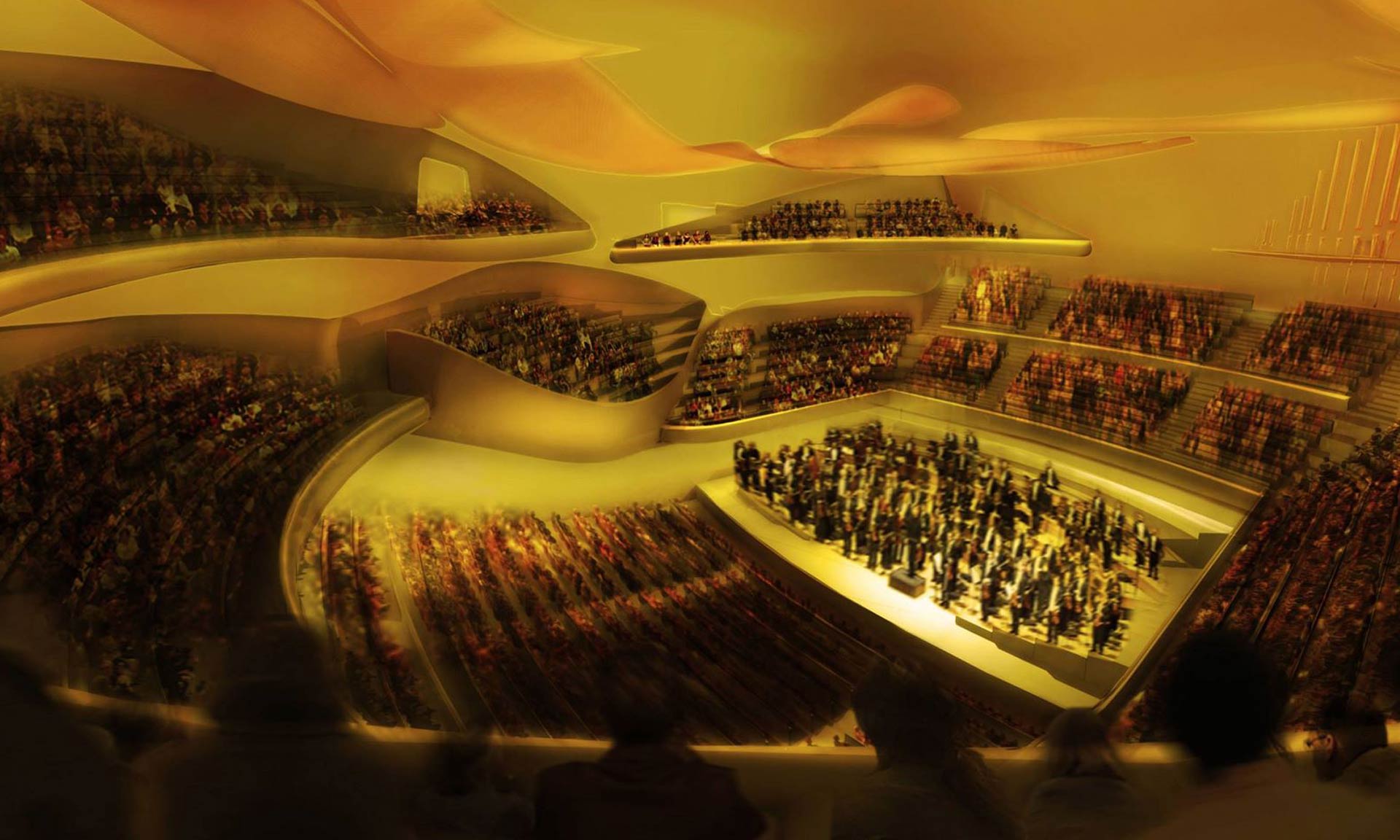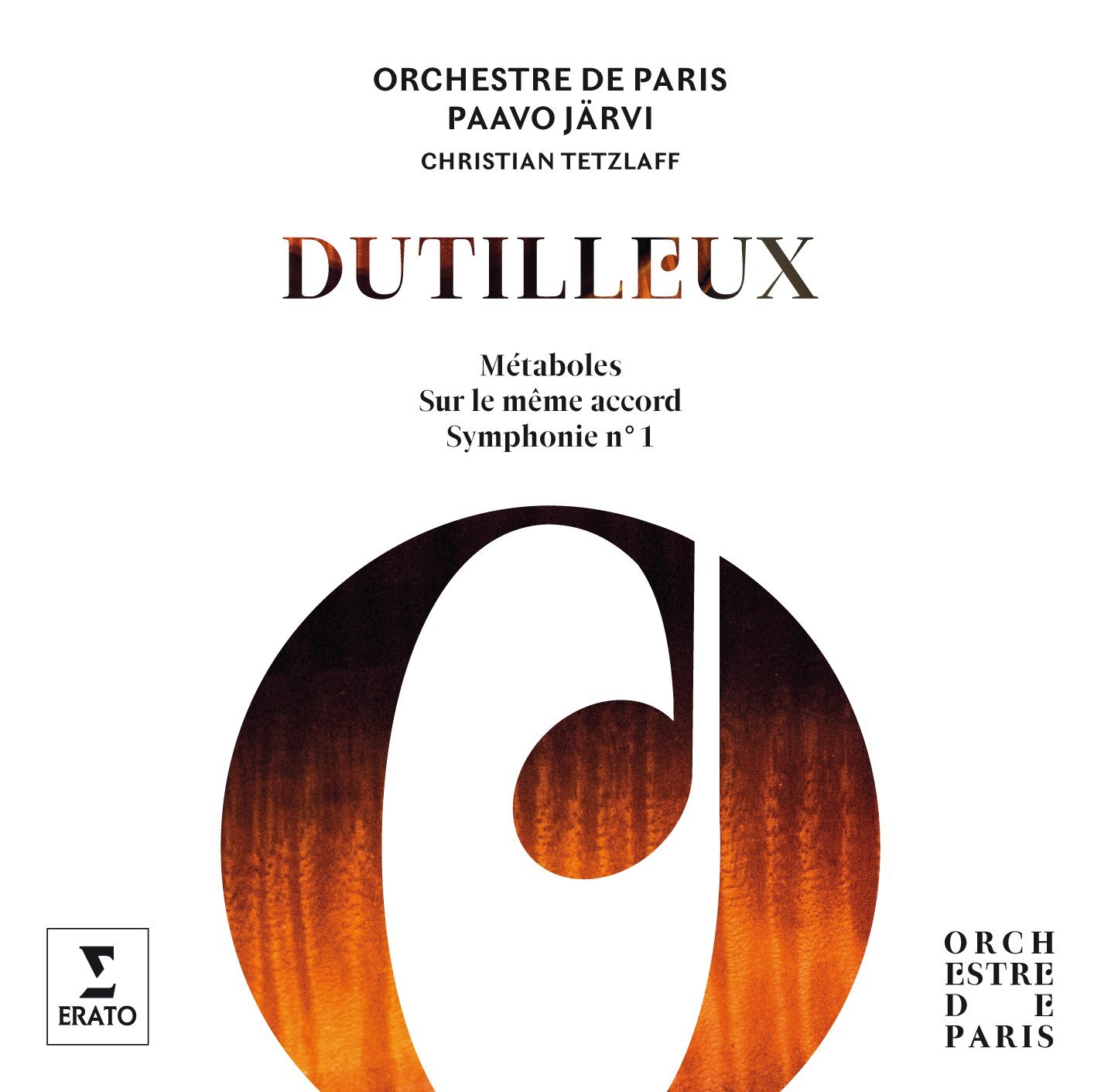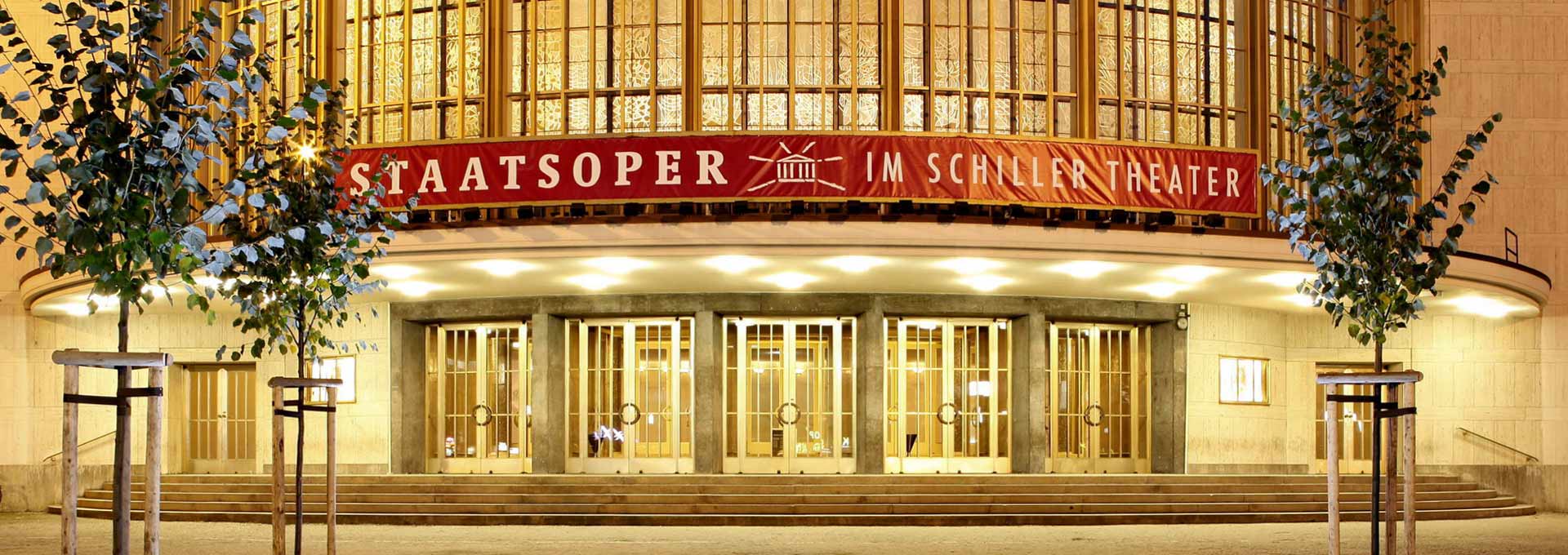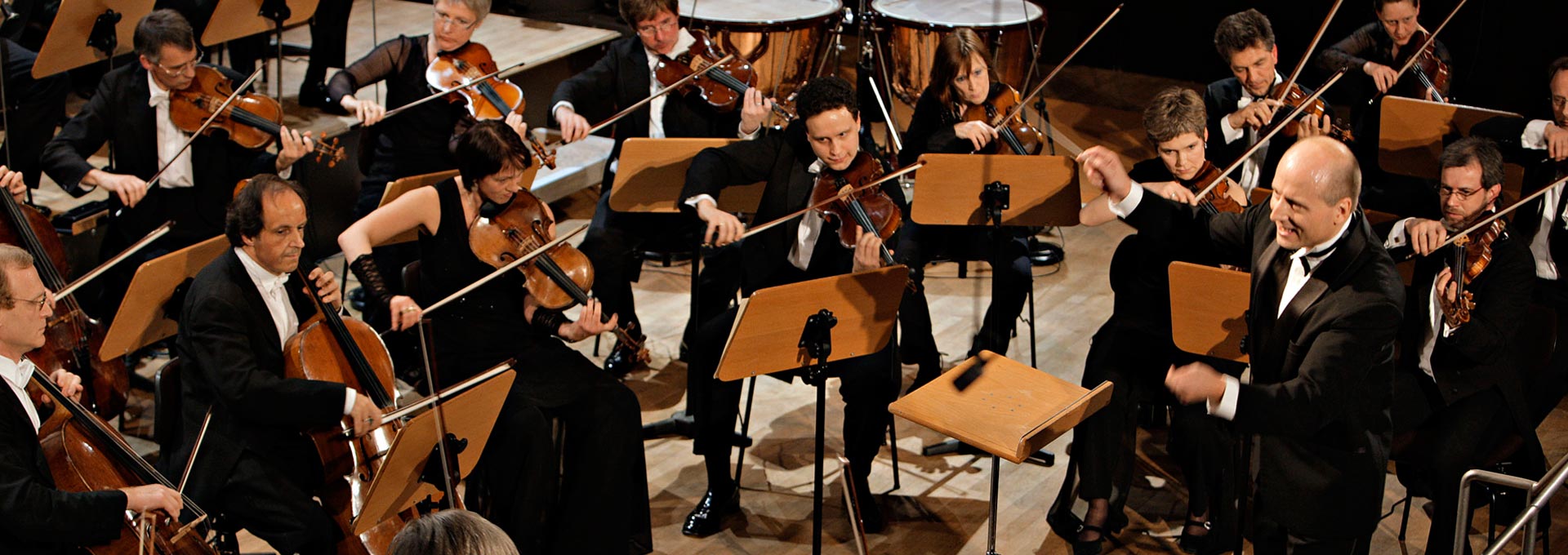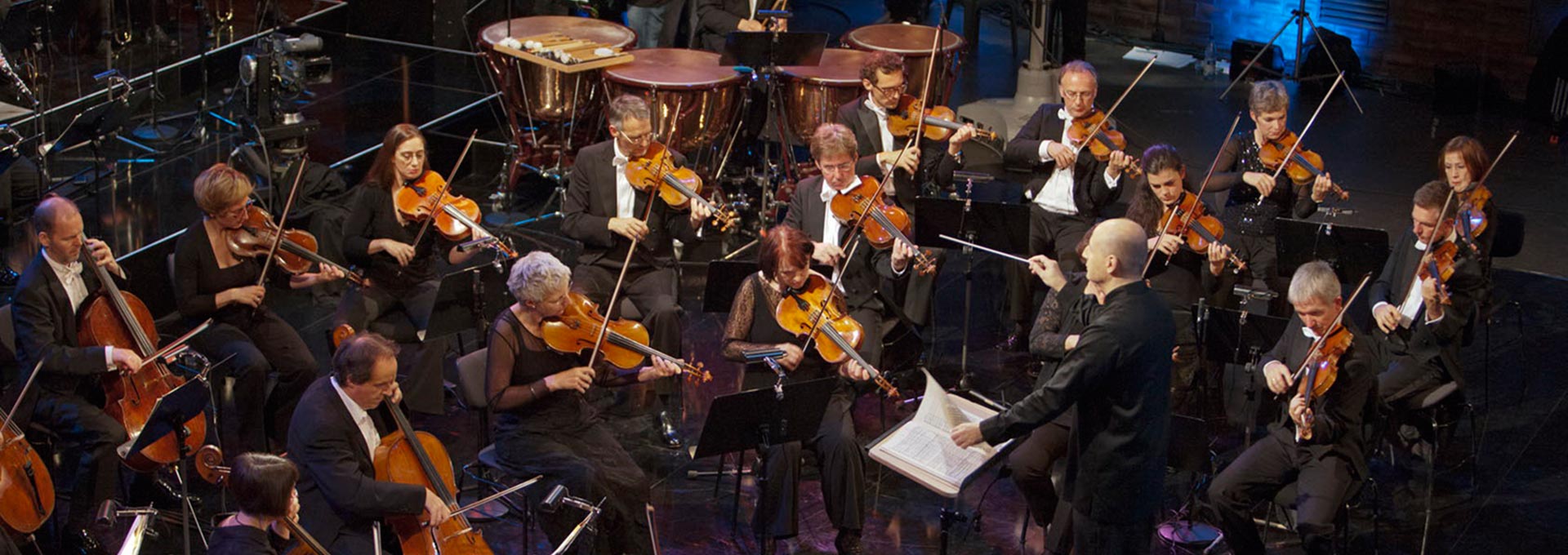Concert intro on main page
Paavo Järvi is the new Chief Conductor and Music Director of Tonhalle-Orchester Zürich as of the 2019-20 season. Their first performances together were met with a rapturous welcome and look set to signal a promising and fruitful partnership. Together they have recorded a programme dedicated to various orchestral works by Olivier Messiaen, written both early and later in his career.
The Messiaen album is released on 27 September to coincide with Paavo Järvi’s inauguration concert in Zürich on 2 October. The first season will be devoted to Järvi’s Nordic roots and opens with Sibelius’s Kullervo, to be followed by the complete cycle of Tchaikovsky symphonies, which Alpha Classics will release in March 2021 to accompany the reopening of the mythical Tonhalle after its extensive renovation and where the orchestra makes its home right on the banks of Lake Zürich.
Biography-post
Estonian Grammy Award-winning conductor Paavo Järvi is widely recognised as one of today’s most eminent conductors, enjoying close partnerships with the finest orchestras around the world. He serves as Music Director of the Tonhalle Orchester-Zürich, as the long-standing Artistic Director of The Deutsche Kammerphilharmonie Bremen since 2004, and as both the founder and Artistic Director of the Estonian Festival Orchestra.
Highlights of Paavo Järvi’s sixth season as Music Director of the Tonhalle-Orchester Zürich include performances of Bruckner Symphony No.1 and Mahler Symphonies Nos 1 & 7, as well as Archora by this year’s creative chair, Anna Thorvaldsdorttir, and John Adams’ piano concerto After the Fall with season focus artist Víkingur Ólafsson. Further highlights include a tour of Spain in October and guest performances in Hamburg, Paris, Frankfurt and Cologne in March. The season closes with a new bi-annual summer festival called tonhalleAIR, in which Paavo Järvi leads programmes with the Tonhalle-Orchester Zürich and soloist Jean-Yves Thibaudet, as well as the student orchestra of the Musikschule Konservatorium Zürich. Alpha Classics releases Bruckner Symphony No.9 in September, coinciding with the 200th anniversary of the composer’s birth, followed in Spring 2025 by Mahler Symphony No.5, the first release in a complete cycle which will span the seasons to follow.
2024 celebrates Paavo Järvi’s 20th anniversary as Artistic Director of The Deutsche Kammerphilharmonie Bremen, recently voted Gramophone Orchestra of the Year. Together they have performed and recorded benchmark performances of the complete orchestral works by Beethoven, Schumann and Brahms. Highlights in the 2024/25 season include extensive tours throughout Japan, South Korea and Europe and the release of Volume 2 in the Haydn London Symphonies project on RCA Red Seal.
Each season concludes with two weeks of performances and conducting masterclasses at the Pärnu Music Festival in Estonia, which Paavo Järvi founded in 2011. The success of both the Festival and its resident ensemble – the Estonian Festival Orchestra – has led to profile tours across Asia and Europe, including performances at the Berlin Philharmonie, Wiener Konzerthaus, BBC Proms and Hamburg Elbphilharmonie. In Spring 2024 Alpha Classics released their fifth album, Ship of Fools, featuring premieres of three new orchestral works by leading Estonian composer, Jüri Reinvere.
In addition to his permanent positions, Järvi is much in demand as a guest conductor, regularly appearing with the Berliner Philharmoniker, Royal Concertgebouw Orchestra, Philharmonia and the New York Philharmonic. This season, Järvi also conducts the San Francisco Symphony, Los Angeles Philharmonic, Staatskapelle Berlin, NDR Elbphilharmonie Orchester, Shanghai Symphony and Hong Kong Philharmonic. He also continues to enjoy close relationships with many of the orchestras of which he was previously Music Director, including Orchestre de Paris, Frankfurt Radio Symphony and NHK Symphony Orchestra, Tokyo.
In 2024 Paavo Järvi and the Tonhalle-Orchester Zürich received an International Classical Music Award for their recording of Bruckner Symphony No.8 on Alpha Classics. With the Deutsche Kammerphilharmonie Bremen, he has won both the 2024 Opus Klassik and 2023 Gramophone “Orchestra or the Year” award, as well as the 2019 Rheingau Music Prize and Opus Klassik Conductor of the Year. Other prizes and honours include a Grammy Award for his recording of Sibelius’s Cantatas with the Estonian National Symphony Orchestra, Gramophone and Diapason Artist of the Year (2015) and Commandeur de L’Ordre des Arts et des Lettres awarded by the French Ministry of Culture. In 2015 Paavo Järvi was also presented with the Sibelius Medal in recognition of his work in bringing the Finnish composer’s music to a wider public and, in 2012, he received the Hindemith Prize for Art and Humanity. As a dedicated supporter of Estonian culture, Paavo Järvi was awarded the Order of the White Star by the President of Estonia in 2013.
PARIS PHILHARMONIE – INAUGRAL CONCERT
The long awaited new concert hall in Paris, designed by award winning French architect Jean Nouvel, opens on 14 January with three inaugural concerts performed by the Orchestre de Paris and conducted by Paavo Järvi.
Following neither the ‘shoebox’ style (as at the Musikverein in Vienna), nor the ‘vineyard’ style (as at the Berlin Philharmonie), the Philharmonie de Paris invents a model all its own, with an adjustable concert hall based on the concept of envelopment. This original design required innovations in architecture, stage design and acoustical engineering. Though a high-capacity hall (2400 seats), the Philharmonie auditorium feels remarkably intimate. But this feeling can be mathematically explained: the distance between the conductor and the farthest spectator is only 32 metres (compared to 48 metres at the Salle Pleyel). ‘Evocative of immaterial, draped sheets of music and light, the hall suspends the listeners-spectators in space, on long balconies… This suspension creates the impression of being immersed in music and light’, explains the architect, Jean Nouvel.
Visit the official website of the Philharmonie de Paris
NEW RECORDING – DUTILLEUX
This recording is the first in a series featuring the Orchestre de Paris and its Music Director Paavo Järvi. The programme offers three works by the late, lamented Henri Dutilleux (1916-2013), widely considered the most important French composer of the second half of the 20th century: Sur le même accord ‘Nocturne for violin and orchestra’, with violinist Christian Tetzlaff, the Symphony No.1 and Métaboles. The release coincides with the inauguration of the Philharmonie de Paris in January 2015, when Järvi and the Orchestra will perform the gala opening concerts.
“VIBRANT AND COLOURFUL” – GUEST CONDUCTING THE STAATSKAPELLE BERLIN
Paavo Järvi recently conducted the Staatskapelle Berlin, receiving a glowing review from the Berliner Zeitung. He returns in May to conduct the Berlin Philharmonic in three concerts concerts featuring Schumann’s Overture, Scherzo and Finale in E Major, Prokofiev’s Concerto No. 2 in G minor and Shostakovich’s Symphony No. 1 in F minor. The soloist is Yuja Wang.
“It really is a bit odd that Paavo Järvi’s name hasn’t been taken up at all in connection to Simon Rattle’s successor at the Philharmonic. The conductor has, until now, seldom appeared as a guest conductor with the orchestra and only as recently as two years ago was he re-invited to perform with them after a long gap. Perhaps Järvi comes across as too unpretentious, too musical; possibly because everything seems a little bit too easy to him. He sparks the public with reliable enthusiasm; and he has an extremely wide repertoire from almost all eras, which he serves with exceptionally good taste.”
“This is what was experienced at Monday’s wonderful concert in the Philharmonie with the Staatskapelle. Järvi’s clarity and the orchestra’s silkily soft sound – these complemented the evening beautifully … Mozart’s G Major Piano Concerto (with Maria Joao Pires as soloist) feather-lightly performed, with such noble, almost tender restraint like one hardly ever hears from this powerful ensemble … Opening the concert was Olivier Messiaens’ early orchestral work “Le Tombeau resplendissant” which the composer wrote in memory of the early death of his mother. A work, with which the conductor Paavo Järvi could prepare the Staatskapelle for what followed: the gentleness of the mystically glowing passages which recurred in the piano concerto and the uncharacteristically rough opening of the Messiaen which lead to Schumann’s Spring Symphony after the interval.
“In recent years Järvi has extensively worked on the Schumann Symphonies which he performed as a cycle with the Deutsche Kammerphilharmonie, of which he has been the director for 10 years: this familiarity with the score is felt in every note. Järvi conducts this first symphony resolutely as a work of joyous abandon. Hefty dialogues between the string groups, a lost dream in the slow movement, slapstick humour in the finale– with Paavo Järvi it all sounds so vibrant and colourful, that one looks back on September’s parlous Schumann – Brahms cycle and thinks: I would also really like to hear this with the Philharmonic.”
http://www.berliner-philharmoniker.de/en/concerts/calendar/details/20432/ – highlight=PAAVO+JÄRVI
DEUTSCHE KAMMERPHILHARMONIC ASIAN TOUR
Paavo Järvi has been Artistic Director of The Deutsche Kammerphilharmonie Bremen since 2004 and, celebrating their 10th anniversary, they have just returned from a triumphant tour in Asia with concerts across Korea and Japan.
Following their recent success performing and recording the complete cycle of symphonies by Beethoven and Schumann, this tour was dedicated to Brahms and concluded with four sold out performances at the Tokyo Opera City Hall featuring all four Brahms’ symphonies, as well as both piano concertos, the violin concerto, the violin and cello concerto and incidental music. Järvi and the ensemble will record their first Brahms’ disc for Sony in 2015 for release in 2016.
The Korean Times wrote:
“This performance marked the fifth by Järvi and the Bremen German Chamber Philharmonic in Korea but it was nonetheless staggering. Though many regard the music of German composer Johannes Brahms to be stately and imposing, Järvi’s interpretation was quicker, lighter and more lyrical”
DEUTSCHE KAMMERPHILHARMONIE BREMEN AWARDED THE WÜRTH PRIZE
On 29 November the Deutsche Kammerphilharmonie Bremen was awarded the Würth Prize for Corporate Social Responsibility and the “outstanding regional and youth projects which it has intiatied.” The commitment of the orchestral members was recognized for their ” vibrant introductions to musical life with a future”.
